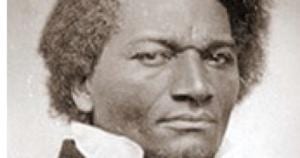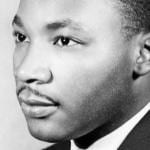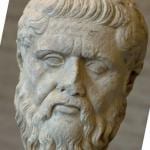When you know bright people, sometimes they say things so well, you know other people should hear what they think. Today I get to share something from one such new voice.
Jack Franicevich is a graduate of Biola University and the Torrey Honors Institute. He lives in Phoenix, where he is teaching 9th grade and preparing for ordination in the ACNA.
Mr. Franicevich:
 I teach humanities at a Title I charter in Phoenix called Maryvale Preparatory Academy. We are a K-10 that is two years away from becoming a K-12, and most of our students will become the first college graduates in their families. I teach 9th graders a course in American letters.
I teach humanities at a Title I charter in Phoenix called Maryvale Preparatory Academy. We are a K-10 that is two years away from becoming a K-12, and most of our students will become the first college graduates in their families. I teach 9th graders a course in American letters.
Earlier this week, during a discussion of Fredrick Douglass’ autobiography, we asked how his claim that reading is the “pathway from slavery to freedom” could be true. Here was our best idea:
Reading not only gives us “perspective,” it also introduces us to authors and figures we can “relate” to. This is especially significant in the context of Douglass’ story, because he doesn’t “relate” to his relatives. His grandmother lives too far away to visit; having only met his mother four times, he found himself unmoved by her death; and, having never corporately experienced the love of their common mother, he feels no bonds of brotherhood with his birth-siblings.
We noted that slaves like Douglass do not have access to one of the foundational American understanding of patriotism and fatherhood: accepting war in your day that your sons might have peace in theirs. We remember this image from Patrick Henry, Thomas Paine, and Francis Scott Key. Even Huckleberry’s friend, Jim, a slave himself, runs away not for his own liberation but for the chance to buy-back his wife and children.
But with no home, no father, no mother, and no children, what motivation does the young Douglass have to stand up?
Reading gives people relatives. Tom Sawyer was not a pirate, nor had he ever met one, but the affinity he felt with the pirates in the stories he read gave him a sense of familial identity with them. Whenever his little gang of robbers did things contrary to “the books,” he was offended, both on his own behalf and on behalf of pirates.
One student brought up an old conversation in which we had defined “annotations” as “the records of your conversation with the author.” This made us realize that all of our reading, even the dry, propositional claims, is familial. When the goodness, truth, and beauty of something in a book impresses itself on us, whatever action we take that accord with those principles is not just an action that accords with those principles, but an action taken in the memory of, in the authority of, in the honor of, or in the name of, our expanding family. The arguments which strengthen Douglass ‘ resolve were taught to him by the white woman who taught him the A-B-C; the boys whom he tricked into teaching him how to read; and all the greats whom “The Columbian Orator” anthologizes. Another student pointed out an image of Douglass’ annotations of the book— reading and annotating George Washington makes him a son of our nation’s father and, therefore, a greater American in his own right.
Masters dehumanized their slaves by de-familiating them. Reading is “the pathway to freedom” because it gives Douglass a family in whose name he can act with courage and conviction. This is Douglass’ experience of reading abolitionists and orators and I hope it is my students’ reading experience.
That’s where we got in class. As a Christian, I think we can take one more step:
This is also, by grace, the experience of baptized Christians who read the Scriptures, and act in the memory, and the family name of Christ, becoming sons who only do that which we see our Father doing.













